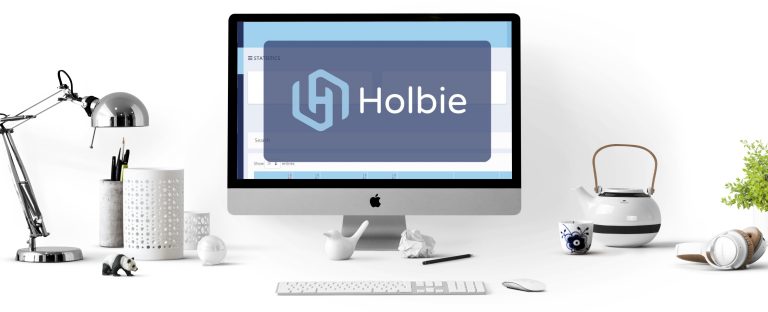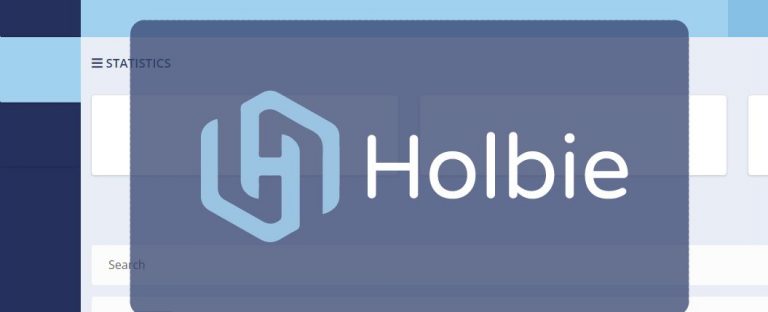Continuing education is not just a requirement for maintaining licensure, it’s also a crucial part of personal and professional development in the fields of acupuncture and massage therapy. It allows you to stay updated with the latest techniques, research, and best practices, ensuring that you can offer the highest level of care to your patients. But with so many options out there, how do you choose the right courses that align with your career goals and practice needs? In this blog, we will guide you through some key considerations for selecting the right continuing education courses.
In an era where technology is revolutionizing industries across the board, holistic health practices are no exception. The dawn of specialized software solutions tailored for holistic health practitioners is a game-changer. Tools like Electronic Health Records (EHR), online booking systems, and financial tracking software have become indispensable. But what exactly is the role of software in modern holistic health practice management? Let’s delve into the subject, focusing on how software solutions like those provided by HolisticBillingServices.com, which offers free electronic health records with our services, are shaping the future of holistic health care.
In today’s fast-paced healthcare environment, simplifying insurance billing is not just a luxury; it’s a necessity. If you’re a holistic healthcare provider struggling with insurance billing complexities, you’re not alone. However, Holbie’s Services is a game-changer in this regard. Targeted at holistic healthcare practices, our specialized software streamlines the entire insurance billing process. In this blog, we’ll explore the many ways Holbie’s Services can simplify your billing process, helping you to focus more on patient care.
The landscape of health insurance is continuously evolving, with more and more providers acknowledging the benefits of alternative therapies such as acupuncture, chiropractic care, and massage therapy. With this growing recognition comes myriad updates to health insurance policies, which directly affect how your holistic healthcare practice operates. Today, let’s dive into how to prepare your practice for these changes, ensuring you stay ahead of the curve.
Understanding the Shift
The mainstream medical community gradually embraces alternative therapies, but insurance coverage has slowly adapted. That said, many insurance plans now cover treatments like acupuncture and massage therapy, at least to some extent. However, each year brings new coding requirements, procedure updates, and policy shifts that can significantly impact how you bill for your services.
Key Areas of Focus
-
Electronic Health Records (EHRs)
Adopting a robust EHR system is crucial for tracking patient data and managing insurance claims effectively. Holistic Billing Services provides a comprehensive solution designed to meet the unique needs of alternative therapy providers. -
Billing Codes
Staying updated on the most commonly used procedure codes is vital. For example, acupuncture or massage therapy billing codes can change yearly. Our platform offers a real-time updated list to ensure you are using the most current codes for billing. -
Policy Updates
Health insurers often update their guidelines, and you must stay informed. Subscribe to newsletters from key insurance providers and consider joining a professional organization that can provide updates and training. -
Compliance
Remember that compliance isn’t just about following laws and meeting specific insurance guidelines. Non-compliance can result in rejected claims or even legal issues.
Navigating Fee Schedules
Insurance companies and even Medicare often change their fee schedules. Adapting to these changes is essential for maintaining a healthy revenue stream. Remember that VA networks usually match Medicare fee schedules if your practice involves acupuncture. So, keep an eye out for changes in both.
Preparing for Audits
As the client volume grows for alternative therapy services, so does the scrutiny from insurance companies. Frequent audits have become the norm. Preparing for these audits involves maintaining impeccable SOAP notes, mainly regarding acupuncture billing services.
Adopt Technology
Use advanced billing software to “scrub” claims to verify the accurate information before submitting them to the insurance company. Although this may take longer upfront, it can significantly reduce payment delays and improve practice efficiency.
Training and Seminars
Regular training can provide your staff with the tools needed to adapt to changes quickly. Many professional organizations offer seminars, webinars, and courses on various topics, including insurance billing and coding.
Get Professional Help
If the changing landscape of insurance billing feels overwhelming, consider outsourcing your billing needs to a company specializing in acupuncture billing services or alternative therapy billing. They can handle everything from coding to claims submission, allowing you to focus on patient care.
Final Thoughts
The alternative therapy landscape is shifting, but these changes bring new opportunities for those willing to adapt. Holistic healthcare providers must stay informed about the industry’s ever-changing regulations, insurance coverages, and best practices. From embracing electronic health records to staying on top of policy updates, proactive preparation is the key to navigating this evolving landscape successfully.
If you found this blog informative, remember to check out other resources on our website, holisticbillingservices.com, tailored specifically for the needs of holistic healthcare providers. Here’s to your practice’s continuous growth and adaptation in this exciting field!
In today’s rapidly evolving healthcare landscape, holistic practices like acupuncture, massage therapy, and chiropractic care are gaining recognition for their efficacy and wellness benefits. Yet, despite this growing trend, practitioners often work in silos, separated not just by physical distance but also by a lack of community and business support. This is where joining a professional network can be a game-changer. For those running their holistic healthcare practice, joining a professional network could be their most brilliant business decision this year.
Enhanced Credibility
First off, aligning yourself with a reputable network enhances your professional standing. When potential clients see that you’re a part of a larger professional entity, it provides instant credibility. It’s the same reason why many acupuncturists, massage therapists, and chiropractors seek certification or membership with professional organizations. It’s a stamp of approval, a quick way to show clients you are dedicated and well-qualified.
Knowledge and Skill-Sharing
One of the most obvious but often overlooked benefits is the free exchange of knowledge and experience within a professional community. This can range from clinical expertise to business management strategies. You can share or gain insights on billing services, patient management software, and even niche subjects like acupuncture billing services. The collective wisdom of a network can be an invaluable resource.
Marketing and Business Development
You didn’t become a healthcare provider to become a marketing expert. But the reality is that you can’t help people if they don’t know you exist. Many professional networks offer marketing resources and assistance. Some provide profiles on their websites where clients can find you; others may offer marketing seminars or workshops. The added visibility can significantly boost your practice.
Exclusive Discounts and Deals
Professional networks often negotiate deals with suppliers and service providers, offering discounted rates you cannot secure alone. These can range from medical supplies to software solutions for improving practice efficiency with electronic health records.
Advocacy and Representation
The power of a collective voice can’t be underestimated. Professional networks often act as advocacy groups, lobbying for better regulation, funding, and public understanding of holistic practices. If you’ve ever felt frustrated by bureaucratic red tape around acupuncture billing or limited insurance options for chiropractic care, this is one way to contribute to making a change.
Learning Opportunities
Many professional networks offer exclusive workshops, webinars, and training programs for skill enhancement and professional development. For instance, if you’re in acupuncture, you may find webinars about optimizing your SOAP notes or discussions led by experts in acupuncture billing services.
Patient Referrals
This is the age-old benefit of networking in any profession, and it’s just as relevant here. When other practitioners know and trust your work, they’re far more likely to refer patients to you. This is particularly important in holistic fields, where integrated care is often the most effective approach.
Risk Management and Legal Support
Being part of a larger organization gives you better access to risk management and legal support resources. Should you face a lawsuit or require advice on compliance matters, many networks offer resources or even free consultations to guide you.
Keeping Up with Industry Trends
In a rapidly changing field, staying current is critical. Whether it’s updated in acupuncture billing codes, new research in chiropractic care, or emerging techniques in massage therapy, being part of a professional network ensures that you are always at the forefront of your field.
Work-Life Balance
Last but not least, being a part of a community means you have a support system. Work-life balance is essential in a demanding profession; sometimes, talking to someone who ‘gets it’ can be the best medicine.
To summarize, joining a professional network offers many benefits, from business growth and advocacy to education and emotional support. Given the challenges and complexities of running a holistic healthcare practice in today’s environment, can you afford not to be a part of a professional network?
So, if you are an acupuncturist, massage therapist, or chiropractor looking to up your game, don’t hesitate. Join a professional network and give your practice the boost it deserves. For more tips on enhancing your holistic healthcare practice, stay tuned to our blog at holisticbillingservices.com.
In today’s fast-paced healthcare environment, optimizing efficiency is not just a luxury, it’s a necessity. One key way wellness practices are streamlining their operations is by embracing Electronic Health Records (EHRs). The shift from paper records to digital platforms, like those offered by Holistic Billing Services, is transforming how holistic health practices manage their administrative tasks and patient care. Here’s how EHRs are improving practice efficiency:
Reduced Paperwork and Administrative Tasks
EHRs eliminate the need for maintaining bulky paper records, which not only consume physical space but also require significant time to manage. Digital records are easy to maintain, update, and retrieve, significantly cutting down administrative tasks and freeing up time for patient care.
Improved Coordination of Care
With EHRs, all of a patient’s health information is consolidated in one place. This enables seamless communication among all care providers, resulting in better-coordinated and more effective care. Interoperability features of EHRs allow for secure sharing of information, making referrals and consultations smoother.
Streamlined Billing and Coding
EHR systems come with built-in billing and coding tools. They help generate accurate bills, automate coding, submit insurance claims, track payments, and flag any potential errors before submission. This translates into reduced denials and improved revenue cycle management.
Better Compliance
EHRs facilitate compliance with regulatory requirements. They can automatically update to reflect changes in laws and regulations, helping your practice stay compliant. Plus, they have inbuilt security measures to protect sensitive patient data, which is essential for HIPAA compliance.
Data-Driven Decision Making
EHRs capture vast amounts of data, which can be harnessed for informed decision-making. They can generate detailed reports and analytics, providing insights into practice patterns, patient outcomes, financial performance, and more. This data can guide improvements in your practice.
The Holbie Difference
At Holistic Billing Systems, our Holbie EHR system is designed with the needs of holistic healthcare providers in mind. We understand the unique challenges you face, and our software is tailor-made to address those. We continuously refine our EHR based on user feedback and industry trends, ensuring that it remains a reliable, intuitive, and powerful tool for your practice.
Our EHR doesn’t just digitize patient records – it transforms them into a dynamic platform for practice management. From scheduling to billing, from patient communication to reporting, our EHR simplifies and streamlines all aspects of practice management.
Final Thoughts
Incorporating an EHR system into your practice can revolutionize your efficiency and quality of care. As you consider this transition, be sure to choose an EHR like Holbie, who understands your needs and is a robust, easy-to-use system. With Holbie, you’re not just choosing an EHR – you’re choosing a partner dedicated to helping you simplify your practice and amplify your impact.
Get in touch with us today to see how Holbie EHR can enhance the efficiency of your wellness practice.
Healthcare has dramatically evolved over the years, and so has the recognition and acceptance of alternative therapies like acupuncture, massage therapy, and chiropractic treatment. Today, an increasing number of insurance companies cover these services, leading to an intricate maze of health insurance claims processing. This blog post aims to help you better comprehend the insurance billing process for alternative therapies and how to optimize it for your practice.
Navigating the Health Insurance Landscape
Firstly, understanding the basics of health insurance is paramount. Every policy comes with its own set of terms, conditions, and coverage limits. Depending on the policy, specific alternative therapies may be fully, partially, or not covered at all. Moreover, insurance policies often contain intricacies like deductibles, co-payments, and out-of-pocket limits, impacting how much a patient pays for your services.
Coding: The Language of Health Insurance
In the realm of insurance billing, coding is a universal language. Procedures, diagnoses, and medical services are translated into specific codes, which insurance companies use to determine coverage and reimbursement. For instance, acupuncture services might use CPT (Current Procedural Terminology) codes, while diagnoses are coded using ICD-10 codes. Understanding these codes and using them correctly is essential for successful claims processing.
Submitting a Claim
Once a service has been rendered and coded, it’s time to submit a claim to the insurance company. This usually involves filling out a standardized form electronically or on paper and sending it to the insurer. The claim provides detailed information about the patient, the provider, the services rendered, and the associated charges.
Managing Rejections and Denials
Despite best efforts, not every claim is accepted on the first try. Insurance companies might reject a claim if there’s an error or omission in the form or deny a claim if they deem the service unnecessary or outside the patient’s coverage. Understanding the reasons behind rejections and denials can help refine your billing process and increase your success rate.
Embracing Automation with Practice Management Software
Today, many practices simplify insurance billing with practice management software and insurance billing services. Such solutions can streamline claims processing, reduce administrative workload, and help avoid common errors that lead to rejections and denials.
The Holbie Advantage
Holistic Billing Services offers Holbie a comprehensive practice management solution tailored explicitly for providers of alternative therapies. Our software simplifies the billing process, helping you easily navigate the complex landscape of health insurance. Moreover, we keep up-to-date with the latest coding changes and insurance trends, ensuring that your practice stays compliant and optimized for maximum reimbursement.
Final Thoughts
Understanding health insurance claims processing can seem daunting, but it becomes manageable with the proper knowledge and tools. By mastering insurance fundamentals, staying current with coding changes, and leveraging technology, you can optimize your billing process, improve cash flow, and focus more on patient care. If you need support navigating the insurance maze, consider partnering with a specialist like Holbie. We’re here to make insurance billing easier and more efficient for your practice.
Contact us today for more information on how Holbie can assist with your insurance billing needs.
In the holistic healthcare sector, communication and documentation are two critical aspects that directly influence the effectiveness of patient care and billing processes. Among various documentation techniques, SOAP notes have emerged as an indispensable tool for acupuncture practitioners, massage therapists, chiropractors, and other providers of alternative therapies. In this post, we explore how you can optimize SOAP notes for your practice, specifically focusing on their role in acupuncture billing and the use of acupuncture billing services.
What are SOAP Notes?
SOAP, an acronym for Subjective, Objective, Assessment, and Plan, is a standardized method for documenting healthcare encounters. SOAP notes ensure that every critical aspect of a patient’s condition and treatment is accurately recorded, fostering clear communication and continuity of care.
Subjective: Patient’s Perspective
The ‘Subjective’ section captures the patient’s viewpoint – their symptoms, concerns, and overall health status. For an acupuncturist, this could involve documenting the patient’s pain level, duration of discomfort, and any changes since their last visit.
Objective: Provider’s Observations
‘Objective’ details are factual, quantifiable data you observe or measure during the patient’s visit. This could include pulse rate, range of motion, palpation findings, or changes in the appearance of the tongue in the context of acupuncture.
Assessment: Professional Evaluation
The ‘Assessment’ segment involves your professional interpretation of the subjective and objective data. Here, you may note your diagnosis, progress, or patient condition changes.
Plan: Roadmap for Treatment
Finally, the ‘Plan’ section outlines the treatment approach, including selected acupuncture points, massage techniques, or other therapeutic interventions. It should also document any recommendations for follow-up appointments or home care.
The Significance of SOAP Notes in Acupuncture Billing
Accurate, comprehensive SOAP notes play a pivotal role in acupuncture billing. They provide a clear record of the services rendered, which is crucial when submitting claims to insurance companies. Detailed SOAP notes justify the need for the services billed, which can help prevent claim denials and ensure accurate reimbursement.
Leveraging Acupuncture Billing Services
Acupuncture billing services like Holistic Billing Serrvices can further optimize the billing process. They offer specialized knowledge of coding and insurance requirements for acupuncture and other holistic therapies. Coupled with clear, comprehensive SOAP notes, these services can enhance your revenue cycle management and free up more of your time to focus on patient care.
Final Thoughts: Quality Over Quantity
When it comes to SOAP notes, quality outweighs quantity. Providing enough detail to justify your treatment without unnecessary or irrelevant information is essential. Focusing on clarity, relevance, and thoroughness can help you create SOAP notes that enhance patient care and acupuncture billing processes.
By optimizing your SOAP notes and leveraging the expertise of acupuncture billing services, you can ensure a smoother, more efficient billing process. This contributes to your practice’s financial health and allows you to dedicate more time and energy to what matters most—your patients.
Contact us today for more information on how Holbie can assist with your acupuncture billing needs.
Are you looking to attract more patients to your acupuncture or massage therapy practice? With the right strategies and tools, you can expand your client base, increase your revenue, and grow your practice. Here are some tips on how to make your practice more visible and appealing to potential patients.
1. Improve Your Online Presence
In today’s digital age, most patients first search online when looking for healthcare providers. Hence, having a strong online presence is essential. Start with a professional and user-friendly website that accurately represents your practice. Your website is a digital front door to your practice, make sure it’s inviting. Optimize your site for search engines using SEO best practices, including using relevant keywords such as ‘acupuncture billing services’ or ‘massage therapy.’
2. Leverage Social Media
Social media is a powerful tool for reaching out to potential patients. Regularly post content related to acupuncture, massage therapy, and wellness on platforms like Facebook, Instagram, and LinkedIn. Engage with your followers by responding to comments and messages. Social media is a great way to showcase your expertise and connect with your community.
3. Use Online Booking
An online booking system like the one offered by Holbie makes it easy for patients to book appointments anytime, anywhere. It can attract tech-savvy patients who value convenience and can reduce no-show rates by sending automated reminders.
4. Provide Excellent Patient Experience
Providing an exceptional patient experience is one of the best ways to attract new patients. From the moment patients contact your practice to their treatment and follow-up care, ensure that every interaction is positive. A friendly and helpful staff, a comfortable clinic environment, and top-notch care can turn patients into advocates for your practice.
5. Optimize Billing and Insurance Processes
A smooth and transparent billing process can significantly enhance patient satisfaction. By partnering with a company like Holistic Billing Services, you can ensure accurate and timely billing. Our services also help you navigate the complexities of insurance billing, making it easier for patients to use their benefits for your services.
6. Network with Other Healthcare Providers
Forming relationships with other healthcare providers can lead to referrals. Reach out to physicians, physiotherapists, and other practitioners in your area. Explain the benefits of acupuncture and massage therapy and how your services can complement their care.
7. Ask for Reviews and Referrals
Happy patients are often willing to recommend your services to others. Encourage satisfied patients to leave online reviews and to share their experiences with friends and family. Positive reviews and word-of-mouth referrals can be powerful marketing tools.
At Holistic Billing Services, we’re committed to helping holistic healthcare providers grow their practices. Our comprehensive services, including billing, electronic health records, and practice management tools, are designed to simplify your operations and free up more time for patient care. To learn more about how we can support your practice growth, visit our website at www.holisticbillingservices.com.
Attracting more patients requires a blend of modern technology, networking, excellent patient care, and effective marketing. With the right strategies and a partner like Holistic Billing Services, you can expand your patient base and take your practice to the next level.
In an era where technology is advancing at an unprecedented pace, maintaining a tech-savvy acupuncture practice can be a game-changer. Electronic Health Record (EHR) systems have become an essential component of effective practice management. In fact, a study conducted by the National Center for Health Statistics (NCHS) found that as of 2017, nearly 9 out of 10 (86%) of office-based physicians have adopted an EHR system. But how do you choose the right one for your acupuncture practice? Here are some tips to guide your decision-making process.
1. Understand Your Specific Needs
Every practice is unique, with varying requirements for software functionality. A study published in Perspectives in Health Information Management suggests that the practice’s needs should guide the selection of an EHR system. Understanding your clinic’s workflow, size, patient volume, and the specific features that will benefit your practice can help narrow down your choices.
2. Evaluate Usability and User Interface
According to a survey by the American Medical Association (AMA), 54% of providers expressed dissatisfaction with their EHR systems due to poor usability. Hence, the software’s user interface should be intuitive and easy to navigate, reducing the learning curve and enabling you and your staff to operate it effectively.
3. Ensure Data Security and Compliance
Patient data security is critical. A study by the Ponemon Institute found that healthcare data breaches cost $6.45 million on average. Thus, the EHR system you choose should comply with all necessary regulations, such as HIPAA, and provide robust data security measures.
4. Check Interoperability
The ability to share patient information with other healthcare providers is a significant advantage of EHR systems. According to the Office of the National Coordinator for Health Information Technology, 93% of hospitals had EHR technology to view, exchange, and receive health data with other health providers in 2015.
5. Consider Pricing and ROI
EHR systems can be an investment. However, when chosen wisely, they can provide substantial ROI through increased efficiency, improved patient satisfaction, and reduced administrative costs.
6. Test Customer Support and Training
Effective customer support and training are crucial for a smooth transition to a new EHR system. Therefore, opt for vendors who offer comprehensive onboarding and continuous support.
In conclusion, choosing the right EHR system for your acupuncture practice involves careful consideration of your unique needs, usability, data security, interoperability, pricing, and support. By taking the time to assess your options thoroughly, you can find a system that not only simplifies your practice management but also amplifies your impact on your patient’s health and well-being.
Are you still wondering how to make the right choice? Holbie offers an EHR system specifically designed for acupuncturists, chiropractors, and massage therapists, ensuring all your unique needs are covered. Feel free to get in touch with us to learn more.










